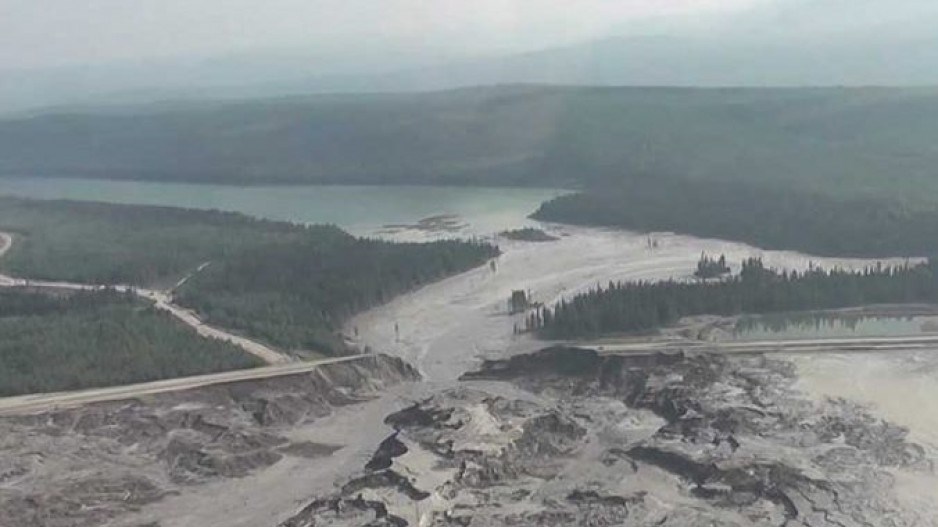Three engineers are facing disciplinary hearings, six years after one of the worst mine disasters in B.C. history.
On August 4, 2014, a tailings pond at the Mount Polley copper mine collapsed, sending 20 million cubic metres of water and slurry flooding into into Hazeltine Creek, Polley Lake and Quesnel Lake.
The disaster cost Imperial Metals (TSX:III) $67 million in clean-up and remediation costs, as well as revenue lost from the mine being shut down.
The disaster was investigated by both federal and provincial agencies, but the company was never charged.
A special technical panel struck to investigate the tailings pond collapse concluded that the collapse was caused by a design flaw and failure by engineers to understand the geology of the site. The tailings pond was situated above an unstable layer of glacial till, which gave way under pressure, and ever increasing embankments built up to contain a growing volume of water.
But there may have been warning signs that engineers responsible for the tailings pond’s design, maintenance and supervision never picked up on.
Concerns had also been raised over the provincial government’s delay in issuing a water release permit – something that might have taken some pressure off the tailings pond's embankments.
In 2016, Imperial Metals sued the two engineering firms responsible for the tailings pond’s design, maintenance and supervision -- Knight Piesold Ltd., the original engineering firm, and its successors: Amec Americas Ltd., Amec Earth and Environmental and Amerc Foster Wheeler Americas Ltd.
In 2018, the firms settled out of court, with Imperial Metals receiving $108 million.
Now, the Engineering and Geoscientists of British Columbia plan to haul three of the engineers who were responsible for the tailings pond before a disciplinary committee to face charges of professional misconduct.
Stephen Rice, a senior engineer with AMEC Foster Wheeler at the time, will face a disciplinary hearing June 15 to 19.
In hearing documents, the disciplinary committee says Rice “demonstrated unprofessional conduct” on a number of counts, including allowing a junior engineer -- Laura Fidel, who faces a disciplinary hearing in July – who is described as “a relatively junior engineer with little experience with embankment design” to act as the engineer of record. The panel charges her with accepting that role, while knowing she was not qualified.
The panel also charges that Fidel failed to conduct more than one site visit in a 13-month period, between January 2013 and February 2014.
Todd Martin faces similar charges of accepting the role of engineer of record without having the qualifications to do so. His hearing is set for late August and early September.
After Fidel left, the disciplinary committee says Rice, as senior engineer, failed to appoint a new engineer of record, or designate someone with the responsibility to observe and monitor the tailings pond and embankments. The disciplinary committee also says Rice “never visited" the tailings pond site himself.
According to the Engineers and Geoscience BC website, possible disciplinary actions can include the revoking of membership. Members who have their memberships suspended or revoked are not allowed to practice as engineers or even call themselves professional engineers or geoscientists in B.C.




